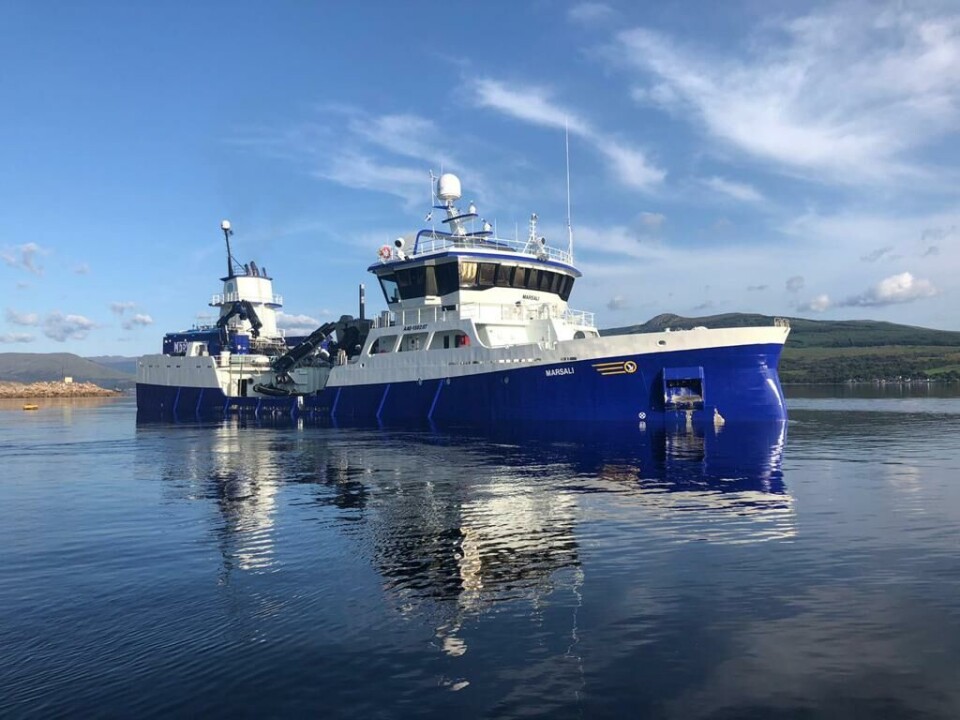
Cooke’s wellboat transfers first smolts in ‘fantastic’ time
Cooke Aquaculture Scotland’s new wellboat completed its first delivery of smolts from the company’s hatchery on Loch Fyne to a sea water site in Shetland in half the usual transfer time.
The state-of-the-art Marsali, which began operations in May, transported 350,000 smolts (56 tonnes) from Cooke’s Furnace fresh water facility to its Stead of Aithness farm off the west coast of Shetland.
Four out of the 12 pens on the site were stocked with fish weighing an average of 160g.
After departing Loch Fyne on Friday afternoon last week, the 63m wellboat, built by Norwegian yard Aas Mek, arrived in Shetland on Monday morning.
One trip
The Marsali has a capacity of 1,500 cubic metres, twice as much as other vessels used previously by Cooke, so it is able to make one trip instead of two.
Cooke said it was very pleased with the way the first transfer went, and with the environmental efficiencies of the Marsali.
‘This is fantastic for the timing of smolts going to sea as it ensures all the smolts are delivered at the peak of the smoltification window, meaning they take to the sea much quicker and are straight into feeding,’ said a Cooke spokesman.
‘Last weekend’s transfer was much quicker than normal which is better for the smolts, saved time for the fresh water and sea water teams managing the transfer, and enables the Marsali to be on station and available for other work.
Highly efficient
‘The Marsali has been designed to be a highly efficient vessel and, combined with the single journey, is better for the environment and helps to further reduce our CO2 footprint.’
The wellboat, owned by Migdale Transport and on long-term contract to Cooke, has many benefits for fish health and welfare in the sea water environment.
It is packed with the latest technology for monitoring and pumping fish, and as well as transferring smolts, it can be used for freshwater treatments, using its reverse osmosis system to create fresh water.
The Marsali can produce 3,000 cubic metres of fresh water per day, which means that it can fill the cargo holds with its own fresh water produced twice a day, for use in treatments.






















































